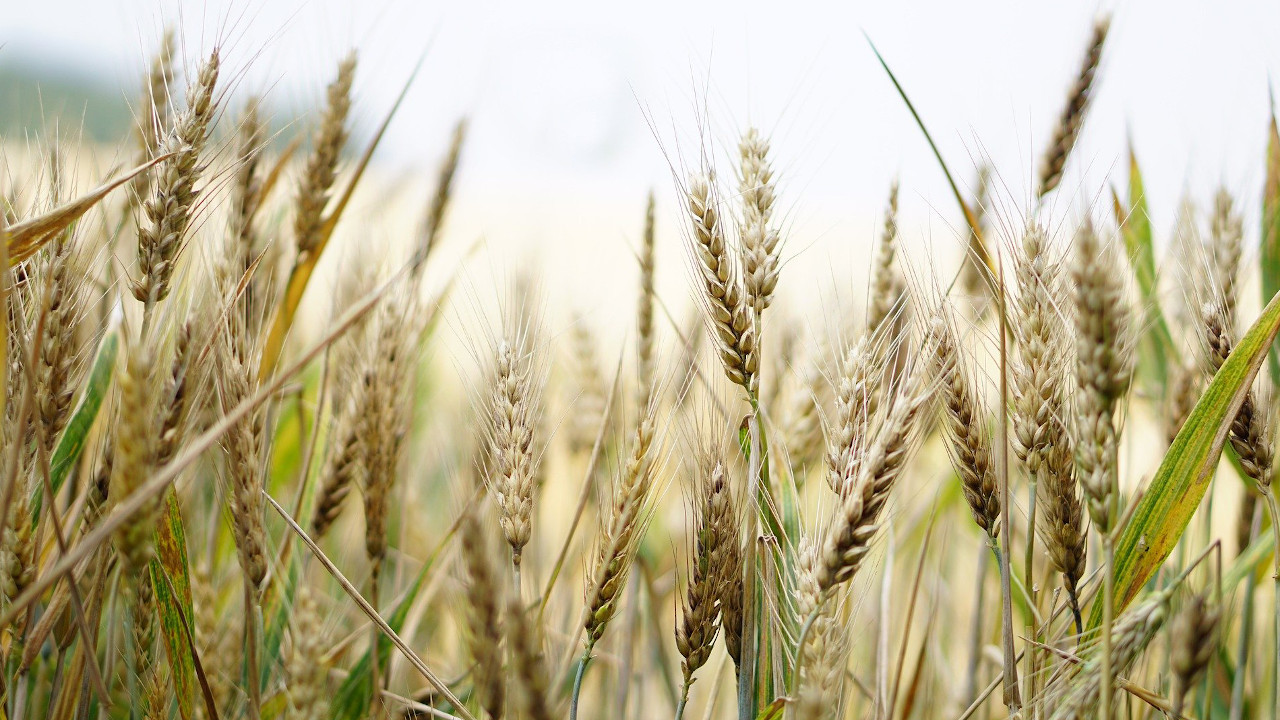Revitalize wheat fields with herbs
In Hesse, the cultivation of deep-rooted spice plants in wheat fields is being tested to improve the nutrient and water supply of the soil.

Wheat is one of the most important foods in Germany. According to the Federal Statistical Office, 22 million tons of winter wheat were harvested in Germany last year - around five percent more than the year before. But the grain is sensitive to environmental influences, as the past heat years have shown. In Hesse alone, a third of the harvest was lost to heat and drought in 2018. Technology, fertilizers and artificial irrigation also reached their limits. In the Trio project, researchers led by the University of Kassel now want to make wheat cultivation fit for climate change with the help of deep-rooted herbs.
Mixed cultivation of deep and shallow rooted plants
"The cultivation of deep-rooted plants is not very common in Central European agriculture. Whether they cope better with climate change, especially in mixed crops, and what contribution they make to maintaining biodiversity has not yet been researched. We want to change that," explains Miriam Athmann, head of the Department of Organic Agriculture and Crop Production at the University of Kassel.
Specifically, caraway, fennel and coriander are to be integrated into the crop rotation and cultivated on the same fields as wheat. The reason: spice plants can accumulate water and nutrients in deeper soil layers with their tap roots. In combination with shallow-rooted wheat plants, this would ensure a reliable supply of water and nutrients during periods of drought. The researchers are hoping here for the effect of the so-called hydraulic lift, which also works with individual tree species. In this process, water is transported from deeper soil layers via the roots into the upper soil layers, thus also improving water and nutrient availability for shallow-rooted plants.
Promoting biodiversity with perennial wheat
Through mixed cropping, the researchers hope to make better use of water and nutrients in the soil, improve soil quality and thus secure food production and farmers' incomes. In addition, the researchers hope that mixed cultivation of perennial crops - specifically fennel and wheat - will benefit biodiversity through flowering. Corresponding field trials are to be carried out at four locations in Hesse, including the University of Kassel's experimental farm, Domäne Frankenhausen.
Millions in funding from the state of Hesse
The Trio project is being funded by the state of Hesse as part of the state offensive for the development of scientific and economic excellence (LOEWE) with 4.8 million euros over the next four years. In addition to the University of Kassel, the Justus Liebig University of Giessen, the Geisenheim University of Applied Sciences, the Potsdam Institute for Climate Impact Research, the Leibniz Center for Agricultural Landscape Research, the Hessian State Office for Agriculture, and the Forschungsring and Ökoplant associations are involved.
bb


